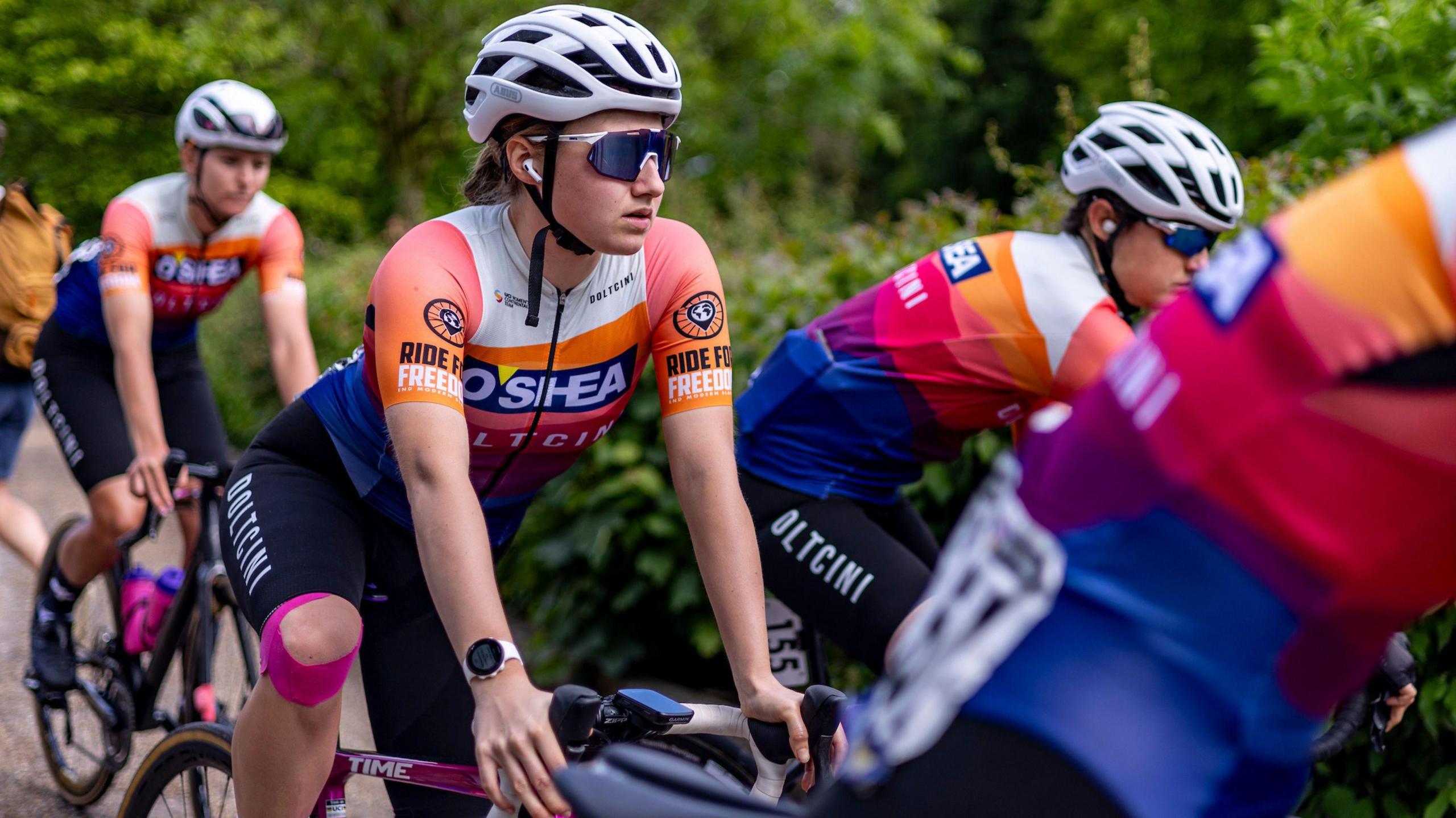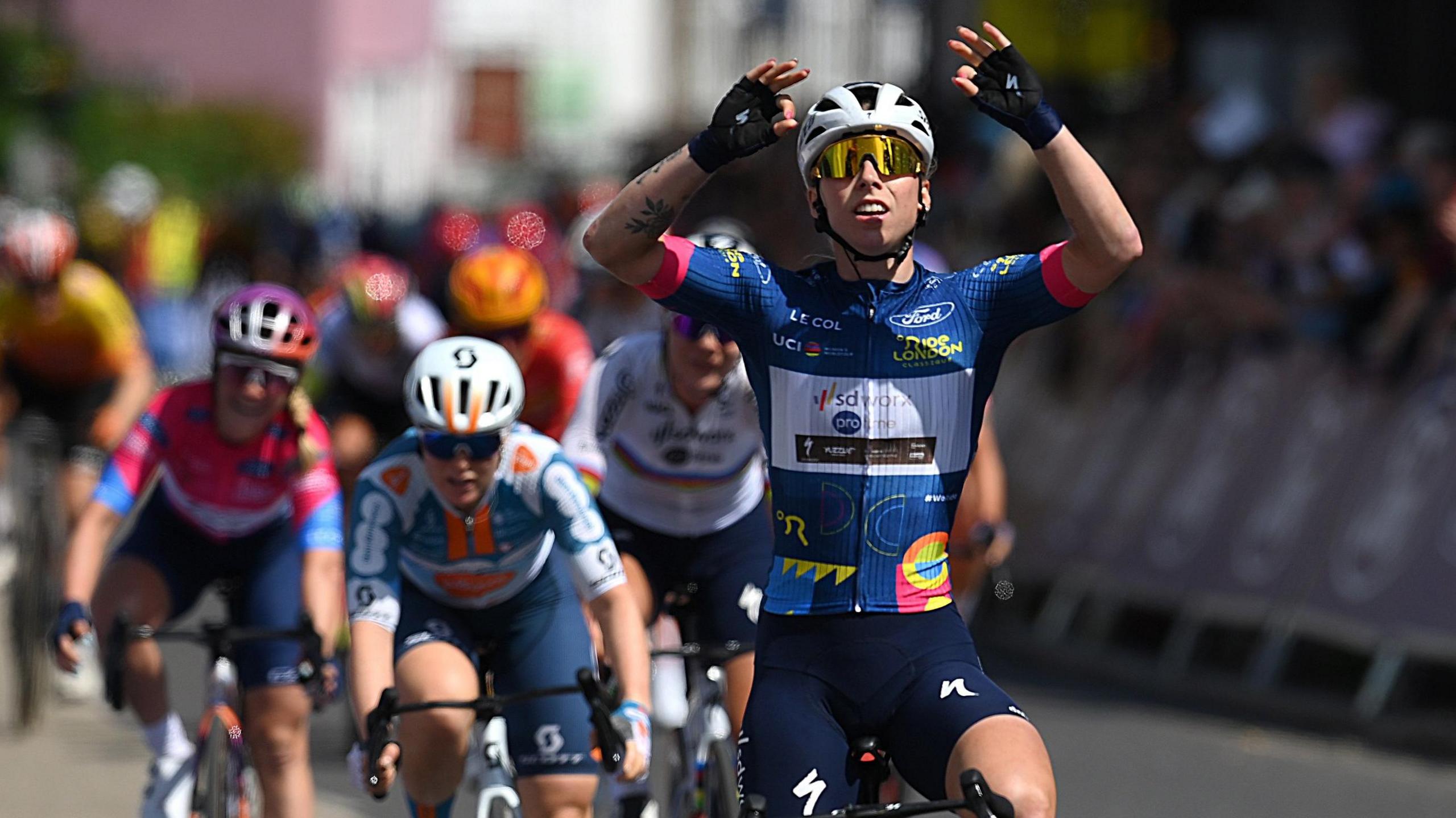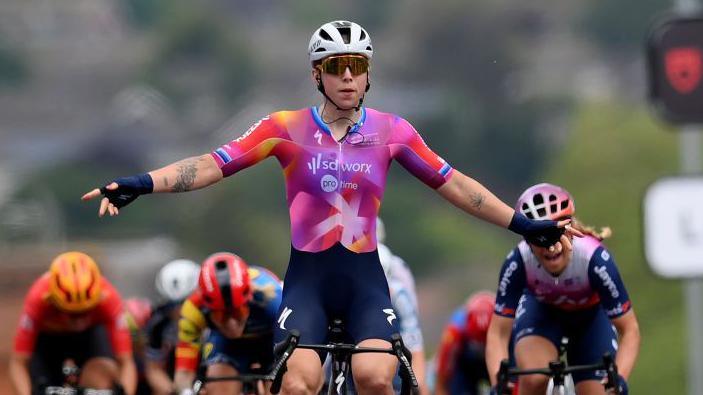'You can achieve, no matter how your brain works'

Connie Hayes, who has dyspraxia, dyslexia and autism, has been cycling since she was 13
- Published
A neurodivergent cyclist has said she hopes to show that "no matter how your brain works" you can achieve "amazing" things.
Connie Hayes, from Leytonstone, east London, is riding as part of the semi-professional women's team Doltcini O'Shea in the Ford RideLondon Classique.
The three-stage race began in Essex on Friday and finishes in central London on Sunday.
The 23-year-old, who has dyslexia, dyspraxia and autism, described cycling as a "complete lifeline" for her.
Shows celebrate disabled and neurodivergent artists
- Published16 May 2024
Neurodiversity Celebration Week 2024: What is it?
- Published10 June 2024
'Making neurodivergent LGBTQ+ clubbing accessible' Video, 00:01:27
- Published29 May 2023
It is the third time she has competed in the RideLondon Classique.
Ms Hayes, who has cycled since the age of 13, said the three-stage event has not been without its challenges.
"The first day was pretty chill until it wasn't," she said.
"When there was 30km to go, it went absolutely crazy hard.
"(On Saturday) there was a lot of crashes, a lot of us got caught up in them, so it was a bit of a dramatic day."
She added that cycling has helped her to challenge herself mentally as well as physically.
"Competitive cycling is not the ideal environment for someone who is autistic," she said.
"A lot can go wrong, a lot can change, you're constantly having to adapt in the moment, so that side of it is a real challenge.
"However, it's given me a completely different outlook and experience and has been a complete lifeline."
'Go out there and show them'
Ms Hayes said that being neurodiverse has spurred her on to train harder.
"I don't think I'd be in this position now if my brain wasn't the way it is because I can deal with the hours on the bike training and really hyperfocus on that," she said.
She said she hoped others who are neurodivergent feel as though they can achieve the goals they set for themselves.
"If you're told you can't do something, go out there and show them you can," she said.
"I was regularly told as a child that I don't have the coordination to do certain things.
"However, I feel like I have shown that no matter how your brain works, is formed or functioned, you can go out and do amazing things," she said.
Listen to the best of BBC Radio London on Sounds and follow BBC London on Facebook, external, X, external and Instagram, external. Send your story ideas to hello.bbclondon@bbc.co.uk, external
Related topics
- Attribution
- Published25 May 2024

- Attribution
- Published24 May 2024
